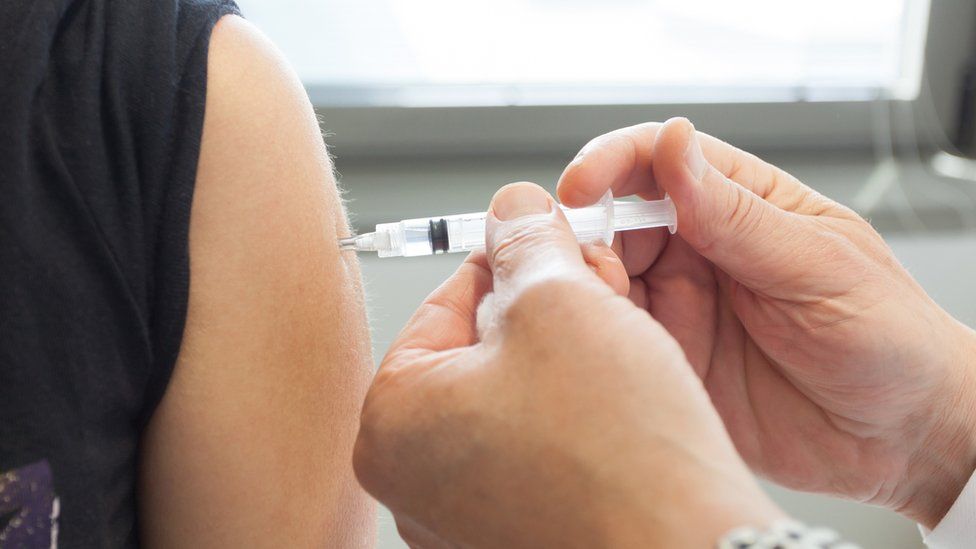Meningitis jab uptake 'worryingly low'
- Published

School-leavers are putting themselves at risk of deadly meningitis if they do not take up the offer to be vaccinated against the disease, nurses are warning.
People living in England who are aged 17 and 18 are eligible for the free jab.
The Royal College of Nursing says only a third took up the offer last year.
Charlotte Hannibal, now 21, lost both her legs and all of the fingers on her left hand due to the disease.
She had just started university when she fell ill.
It started with a "headache, a bit of a sore throat", says Charlotte, who is now an ambassador for the Meningitis Research Foundation.
Twenty-four hours later she was admitted to hospital. Doctors treated the infection, but had to amputate.
'Meningitis W took both my legs and half my fingers'
Older teenagers and new university students are said to be at particularly high risk of infection because they are mixing closely with lots of new people. Coughs, sneezes and kissing can spread it.
The vaccine
The MenACWY jab protects against four strains of meningococcal disease which cause meningitis and septicaemia - strains A, C, W and Y.
MenW, the type Charlotte had, is one of the most aggressive and life-threatening forms and can be fatal.
As well as affecting the membranes around the brain, the infection can cause life-threatening blood poisoning.
Officials say there has been a rapid increase in MenW cases across England, from 22 cases in 2009-10 to 210 in 2015-16.
Young people who have not yet had the MenACWY vaccine remain eligible up to their 25th birthday and should contact their GP surgery to get immunised.
Year 9 pupils (aged 13 to 14) are also routinely offered the jab in school.
Helen Donovan, from the RCN, said: "Meningitis can be fatal, and can leave those who survive with life-changing disabilities. Vaccination is quick, easy and free, and offers protection against most strains of the disease, but reaching young people is not easy.
"Many will have been away over the summer travelling or working before university. But the risk is real and getting vaccinated saves lives.
"We are urging people to contact their surgeries now and book an appointment with the practice nurse."
Dr Mary Ramsay, head of immunisation at Public Health England, added: "Remain vigilant and seek urgent medical help if you think someone may be showing signs of infection."